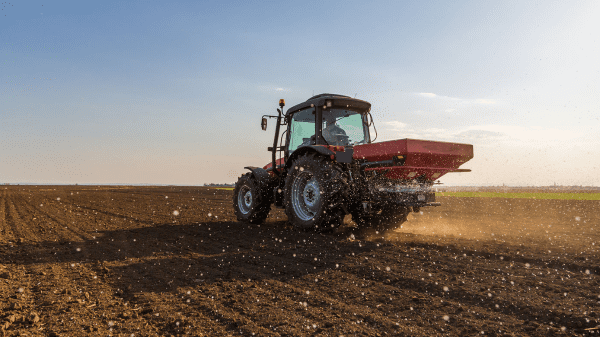Even Russian oligarchs have a legitimate point here.
Sanctioned Russian fertilizer and coal tycoon Andrey Melnichenko was quoted by Reuters news service as saying, “One of the victims of this crisis will be agriculture and food,” adding that the war has “already led to soaring prices in fertilisers which are no longer affordable to farmers.”
Concerns about the world’s tightening sanctions and boycotts of Russia have often focused on oil and gas supplies. Less has been said about another fact: Russia is the world’s largest exporter of fertilizer.

Its exports in 2020 were valued at $7 billion, just ahead of China, the second-largest exporter, with values of $6.57 billion. Belarus, another combatant, accounted for another $2.91 billion in fertilizer exports.
By the way, cutbacks in natural gas, another major Russian export, are forcing European producers to reduce their ammonia output, further pushing up fertilizer costs.
Fertilizer prices have more than doubled since last year, according to USDA. On March 11, it announced a $250 million grant program “to support independent, innovative and sustainable American fertilizer production to supply American farmers.”
“Recent supply chain disruptions from the global pandemic to Putin’s unprovoked war against Ukraine have shown just how important it is to invest in this crucial link in the agricultural supply chain here at home,” said agriculture secretary Tom Vilsack.
“We greatly appreciate the USDA’s announcement and commitment to making much-needed investments to support more American-made fertilizer production and competition to address high costs and limited supplies,” said Florida agricultural commissioner Nikki Fried.
The U.S. is the world’s fourth-largest exporter of fertilizer, with a value of $3.56 billion in 2020. But in the same year it imported $5.79 billion in value, making it a net importer. (Canada is the third-largest exporter, with a 2020 value of $5.16 billion. Canadian imports in the same year were valued at $1.46 billion, making the nation a net exporter.)
“The United States is a major importer and dependent on foreign fertilizer and is the second or third top importer for each of the three major components of fertilizer,” according to the USDA news release announcing the $250 million measure. These are nitrogen, phosphorus, and potassium. Potash, the raw material for potassium, is a major export of Belarus.
For a long time, people have talked about the interconnectedness of the world economy. We are now getting hard lessons in just how interconnected it is.



